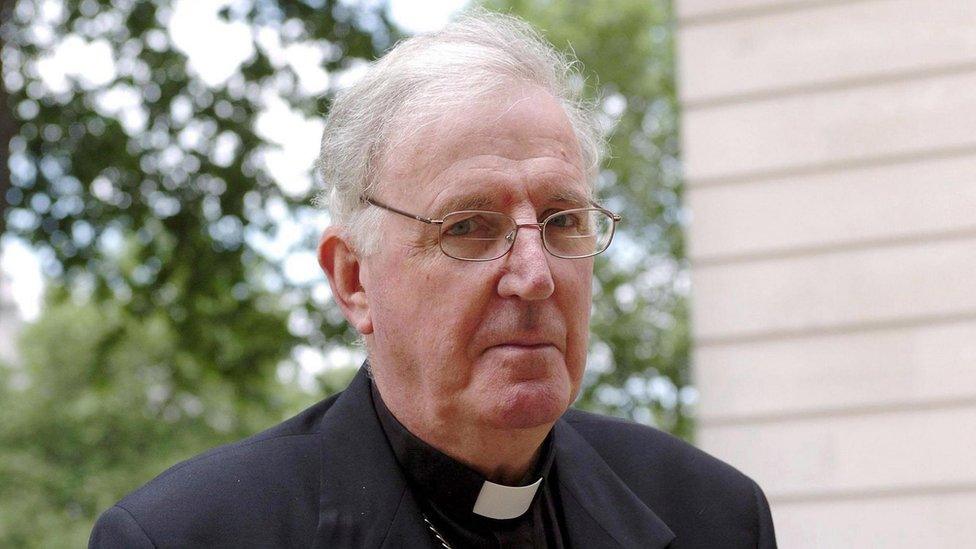Obituary: Cardinal Cormac Murphy-O'Connor
- Published
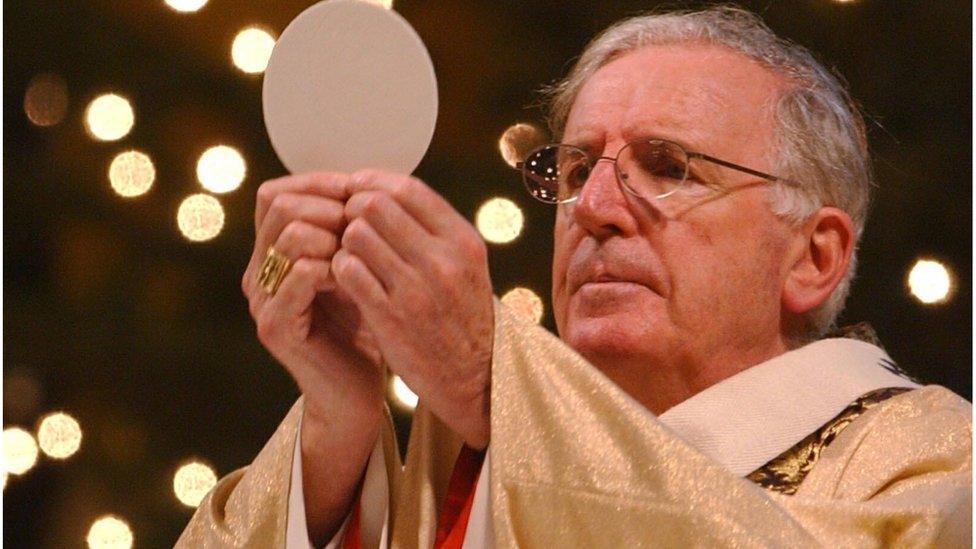
Cormac Murphy-O'Connor served in holy orders for more than six decades.
The man who began his career as a priest in 1950s Hampshire went on to lead the Roman Catholic Church in England and Wales and to don the red hat of a cardinal.
A traditionalist who opposed birth control and abortion, he preached that Christians must be more outspoken about their faith.
But he was heavily criticised when it emerged that he had failed to report a priest, who was later convicted of abusing children. It was a failing which he later bitterly regretted.
Cormac Murphy-O'Connor was born into a devout Catholic family in Reading, Berkshire on 24 August 1932.
His parents had emigrated from County Cork in Ireland before World War One.
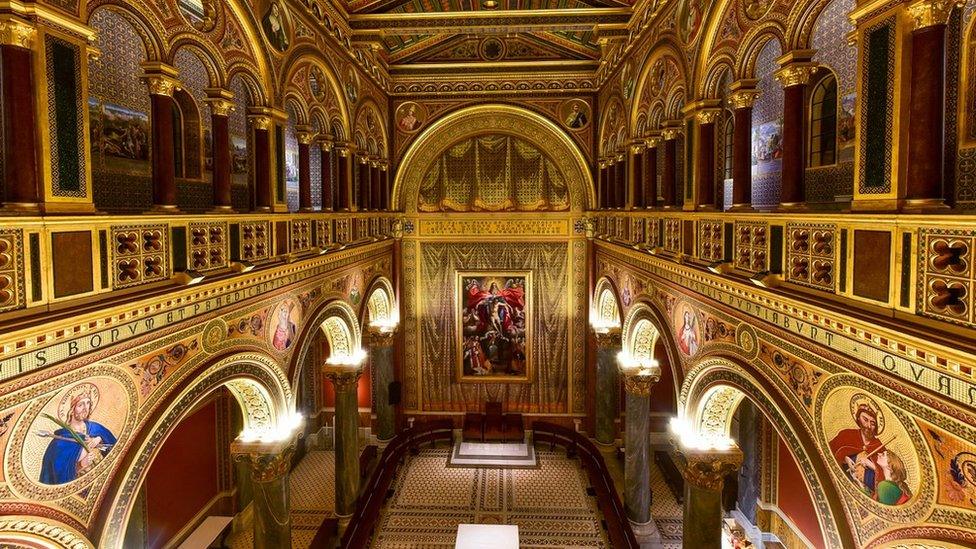
He studied at the English College in Rome later returning as Rector
One of six children, two of his brothers, Brian and Patrick, would also become priests and his eldest brother, James, qualified as a General Practitioner and played international rugby union for Ireland.
The family would say the Rosary (a series of prayers) most evenings and always attended church together on Sundays.
The young Murphy-O'Connor attended the Catholic Presentation College in Reading where he gained a reputation as a useful rugby player and became an accomplished pianist.
Theological acumen
By the time he went to Prior Park College in Bath he knew he was destined for the priesthood.
He studied at the Venerable English College in Rome, the seminary set up in the 16th Century to train priests for England and Wales, where he gained a degree in theology, and was ordained in October 1956.
He began his ministry in Hampshire, eventually being appointed secretary to the Bishop of Portsmouth, Derek Worlock.
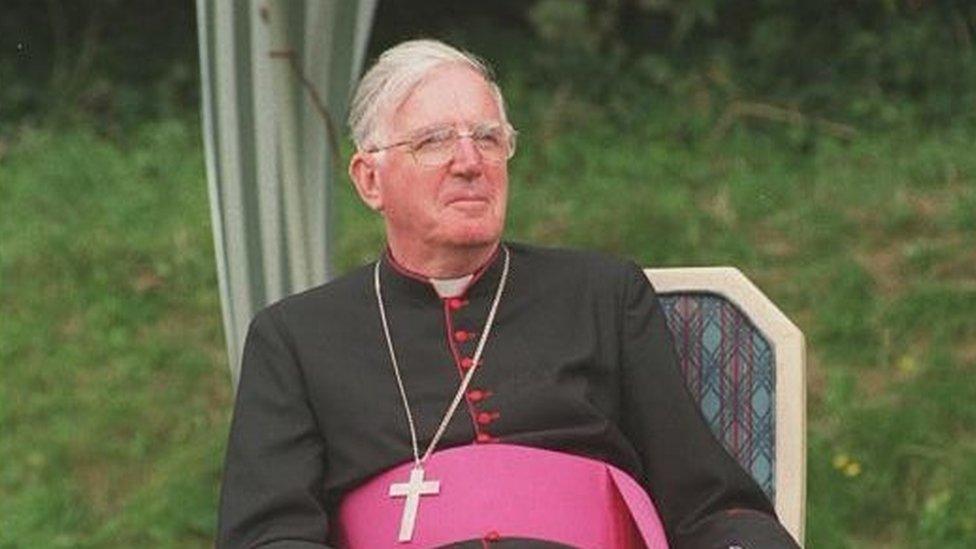
Murphy-O'Connor in 1999 when he was the Bishop of Arundel and Brighton
In 1970 he was appointed as parish priest at the church of the Immaculate Conception in Portswood, a suburb of Southampton.
By then his theological acumen had brought him to the attention of senior clergy and he served as rector of the college in Rome where he had previously studied.
While there he hosted the then Archbishop of Canterbury, Donald Coggan, on his groundbreaking visit to Rome when, to the amazement of the Vatican, Coggan called for full intercommunion between the Anglican and Catholic churches.
Shameful
Murphy-O'Connor was appointed as Bishop of Arundel and Brighton in 1977 where his theologically orthodox and pastorally engaged ministry was well received.
It was in Sussex that he also faced his greatest public challenge when a priest within the diocese, Michael Hill, was accused of child sexual abuse.
Murphy-O'Connor sought advice from a psychotherapist and a counsellor who suggested that Hill should be given a job that did not involve children. The bishop agreed and Hill was made a chaplain at Gatwick Airport. He went on to abuse more children and was subsequently jailed in 1997.
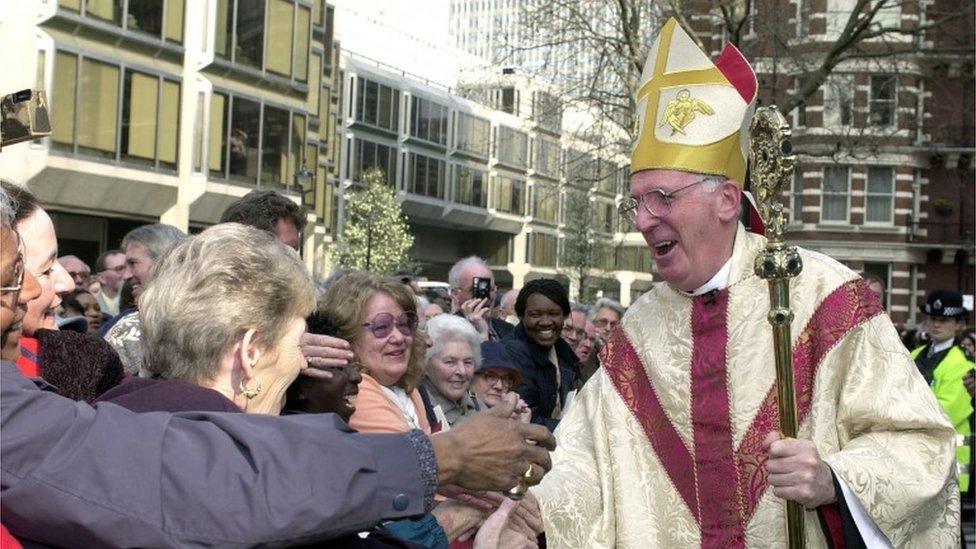
He became Archbishop of Westminster in 2000
He deeply regretted his failure to report the priest to the police, and said of his conduct: "I don't make any excuses. It was shameful. It's very hard for a bishop, who's told when he takes up that office, that a priest is your brother, you must help him, forgive him.
"What we didn't realise, as we should have done, was the grievous damage done to the victims," he added.
Murphy-O'Connor refused to resign but instead, upon becoming Archbishop of Westminster in 2000, established an independent committee led by Lord Nolan, to carry out a review on child protection practices in the Catholic Church in England and Wales.
Gay adoption
The resulting report contained recommendations for key structures required at parish, diocesan and national level and in religious orders, the action needed to create as safe an environment as possible for children and those who work with them, and a strengthening of arrangements for responding to allegations of abuse.
Although he did not engage directly in politics, it was his careful nurturing that led Prime Minister Tony Blair to convert to Catholicism in 2007.
Blair later gave public testimony of his faith after the leadership of the Labour Party had passed to Gordon Brown.
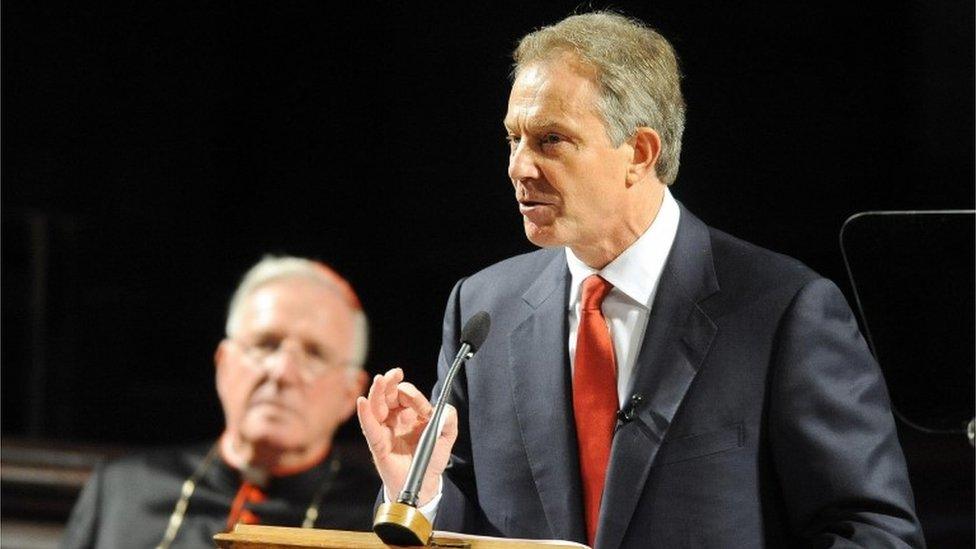
He guided Tony Blair on his path to Catholicism
However, the two clashed over the issue of gay couples being allowed to adopt, with Murphy-O'Connor telling Blair that Catholic adoption agencies should be exempted from the measure, a proposal which the government rejected.
A year later Murphy-O'Connor published a book entitled Faith in the Nation in which he said that while Britain had become more diverse and pluralistic, the Christian values which had shaped its identity should not be abandoned.
Private eccentricity
Throughout his ministry he strove to improve relationships with the Church of England although that became something of a struggle for him when the Anglican Church began admitting women as priests, something which he opposed.
He was created a cardinal in 2001 and, a year later, read prayers at the funeral service of Queen Elizabeth the Queen Mother.
It was the first time since 1509 that a Catholic Cardinal had taken part in an English royal funeral service.
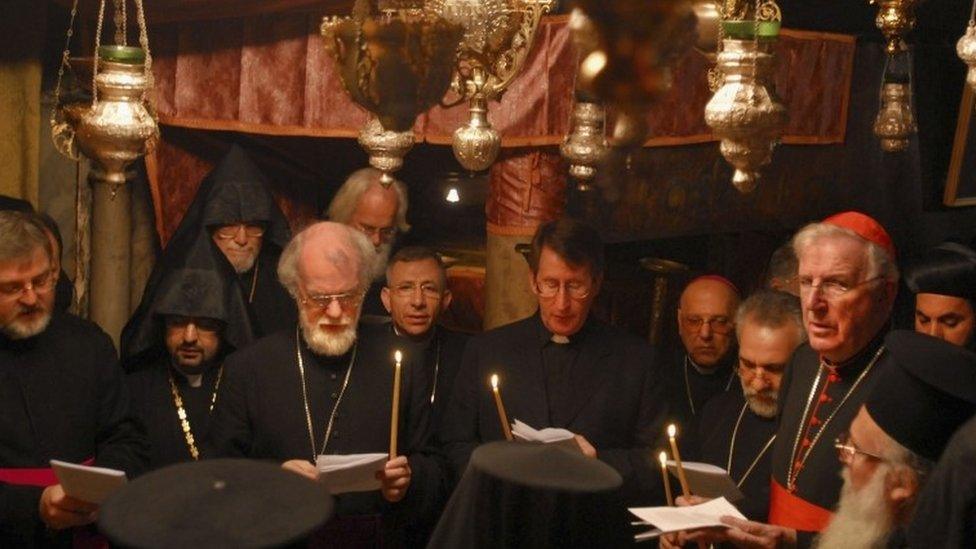
He sought accommodations with other religious leaders in a bid to find common ground
When he reached the mandatory retirement age of 75, Pope Benedict asked him to stay on and he finally retired two years later in 2009.
He was the first Archbishop of Westminster not to die in office.
In retirement Murphy-O'Connor continued to rail against what he saw as the continuing secularisation of British society and what he saw as the marginalisation of religious faith.
"Religious belief of any kind," he said, "tends to be treated more as a private eccentricity than as the central and formative element of British society that it is.
"In the name of tolerance, it seems to me that tolerance is being abolished," he said.
- Published2 September 2017
